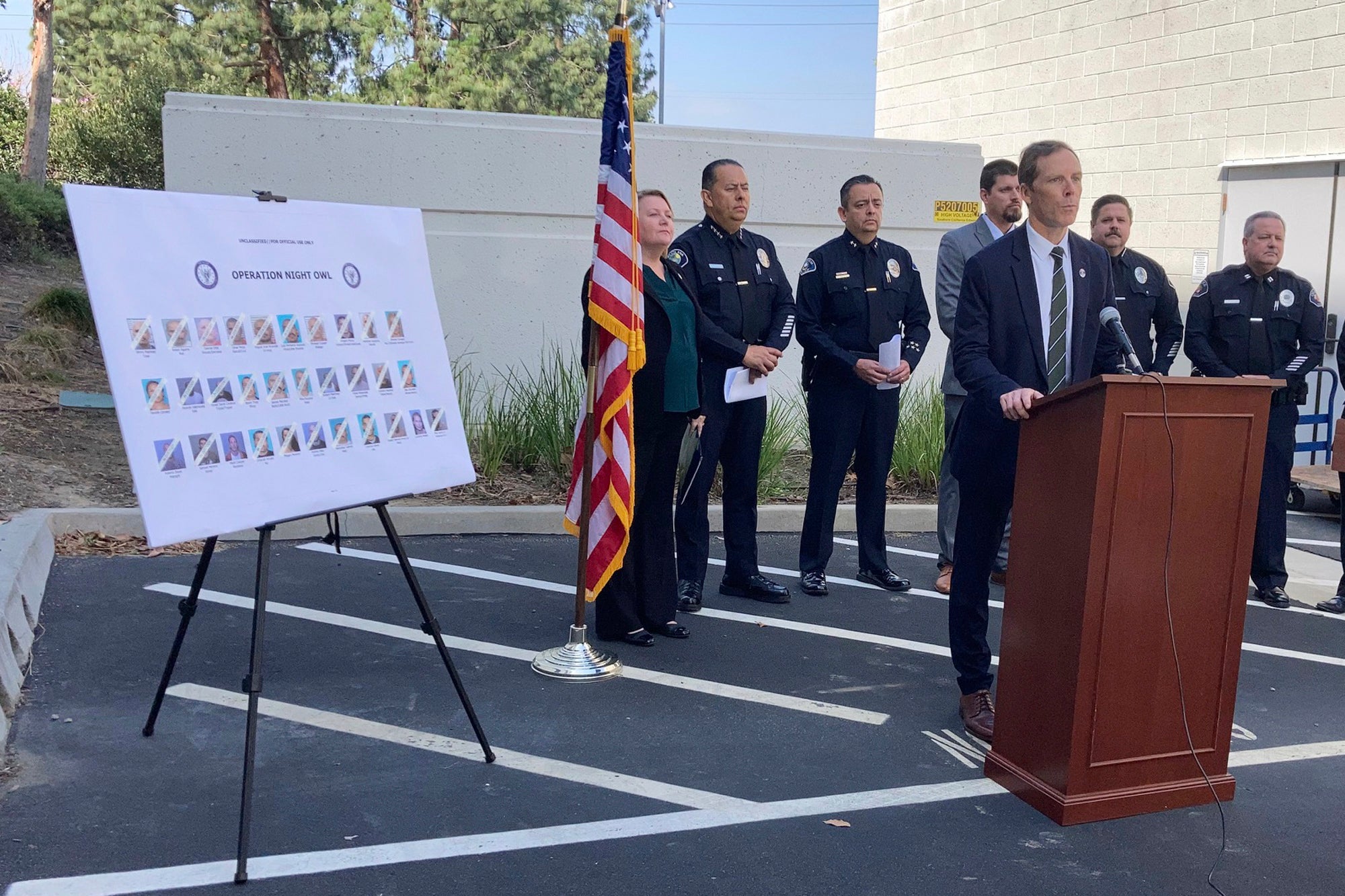US prosecutors indict Mexican Mafia leadership in California
Federal prosecutors have announced a sweeping racketeering case against the leaders of the Mexican Mafia that controlled Latino street gangs in Orange County, California

Your support helps us to tell the story
From reproductive rights to climate change to Big Tech, The Independent is on the ground when the story is developing. Whether it's investigating the financials of Elon Musk's pro-Trump PAC or producing our latest documentary, 'The A Word', which shines a light on the American women fighting for reproductive rights, we know how important it is to parse out the facts from the messaging.
At such a critical moment in US history, we need reporters on the ground. Your donation allows us to keep sending journalists to speak to both sides of the story.
The Independent is trusted by Americans across the entire political spectrum. And unlike many other quality news outlets, we choose not to lock Americans out of our reporting and analysis with paywalls. We believe quality journalism should be available to everyone, paid for by those who can afford it.
Your support makes all the difference.Federal prosecutors announced a sweeping racketeering case Wednesday aimed at dismantling the leadership of the Mexican Mafia that controlled street gangs in part of Southern California.
The indictment unsealed in U.S. District Court against three members of the group and 28 associates includes allegations of two murders, six attempted killings, extortion and drug trafficking in Orange County.
Prosecutors said the case would not eradicate the organization, which mainly operates from behind bars to call shots on crimes in prison and on the streets. But the prosecution would disrupt the leadership that arose when the longtime kingpin who for decades controlled gang activity in Orange County was convicted of racketeering in 2016.
“The message that this case sends is that if you rise to power in that vacuum, we will come for you,” U.S. Attorney Tracy Wilkison said. “No gang member is beyond our reach.”
Twenty-one of those charged were already in custody and nine others were arrested in the past two days. One remained a fugitive.
The 106-page indictment charges members of the group with conspiring to violate the Racketeer Influenced and Corrupt Organizations (RICO) Act, committing violent crimes to aid racketeering, conspiring to traffic drugs, dealing methamphetamine and heroin, and firearms charges.
The Mexican Mafia, which was started in the 1950s at a juvenile jail and grew to an international criminal organization that controls smuggling, drug sales and extortion inside California’s penal system, is made up of leaders of different street gangs.
Leaders direct associates to collect “taxes” on drugs proceeds and order hits on enemies or people who betray them or violate their rules.
For decades, Peter Ojeda was the head of the Mexican Mafia in Orange County, calling shots from inside prison. After Ojeda's racketeering conviction and subsequent 2018 death in prison, Johnny Martinez, Robert Aguirre, and Dennis Ortiz filled the leadership void, prosecutors said.
“The triumvirate of new leaders had expanded the Mexican Mafia’s control over the street gangs and Latino inmates in Orange County jails,” Wilkison said. “Those gang overseers stepped up punishment of those who violated their rules.”
It wasn’t immediately clear if Martinez, Aguirre and Ortiz had lawyers who could comment on their behalf.
The indictment describes a series of crimes carried out as part of the racketeering conspiracy that range from shaking people down for money or dealing drugs to murders plotted for showing disrespect or violating orders.
One man was shot to death in January 2017 during an armed robbery that had been ordered. Another was lured into a car in August that year and shot seven times for failing to pay a drug debt to Martinez, according to the indictment.
At least two of the defendants in the case were also targets of violence but managed to survive vicious attacks.
Gregory Munoz was shot seven times on the street in August 2017 after Martinez ordered him to be removed as a so-called shot caller, the indictment said. He survived and is among the defendants.
Another defendant, Michael Cooper, survived two hits — in January 2018 and another attack on New Year's Eve 2019. Martinez allegedly ordered the killing because Cooper had ordered a hit he hadn't sanctioned and was also suspected of causing a police raid on a gang.
Cooper was stabbed multiple times in the head and back area in the first attack in Calipatria State Prison and cut in the throat and face the second time.
At least four others survived attempted slayings for allegedly abusing their authority, warning others they were targets of violence and showing disrespect to Martinez. One man had his throat slit for allegedly talking about snitching on the Mexican Mafia.
Brian Gilhooly of the FBI said that one of the goals of bringing the case is to lock up leaders farther from their home turf in federal prisons, where it's harder to smuggle contraband.
Despite being locked in prisons where cell phones are banned and communications are monitored, the Mexican Mafia operates through a crude but elaborate communication network of speaking in code with smuggled phones, notes passed between inmates and instructions sent through girlfriends and confidantes who visit.
“We are going to make sure that these individuals get lengthy sentences, and get sent to other prisons throughout the country,” Gilhooly said.
___
Melley reported from Los Angeles.